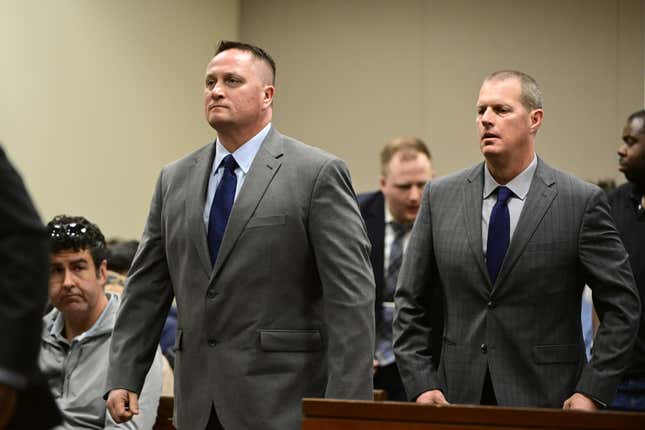
As the trial for two paramedics charged in the death of Elijah McClain continues, the latest testimony comes from the man who determined his cause of death.
When the three Aurora, Colo. officers were on trial, the general argument from the defense was that McClain died of a lethal ketamine dose alone, minus the violent restraints he was placed under by the cops, per The Associated Press. However, in the trial against Aurora Fire Rescue Paramedics Jeremy Cooper and Peter Cichuniec, the defense is arguing the opposite, claiming the officers did the most damage.
Pathologist Dr. Stephen Cina’s testimony cleared the air a bit.
Cina testified Wednesday that McClain’s cause of death was initially “undetermined,” per a CBS report. However, once he saw the body camera footage of the incident, he determined the cause of death was complication of ketamine administration following restraint.
Read more from CBS News:
“To me, seeing that footage of a guy who looks worn out but alive to one that looks like he’s about to stop breathing and die, with the only thing being the ketamine injection in between, I felt we couldn’t ignore that, so I determined the cause of death to be complications of ketamine administration following restraint,” Dr. Stephen Cina, the forensic pathologist in the case, said in his testimony Tuesday.
“I didn’t call it an outright ketamine overdose because it wasn’t at a lethal level, but even this therapeutic level was just too much for this person at that time,” Cina said. “He just did not tolerate it well and he stopped breathing.”
Ultimately, Cina testified that the ketamine administration was the most important factor to McClain going into cardiac arrest and brain death, noting it came just two minutes after he’d been exhausted from the police restraints.
Authorities say McClain was placed in a carotid artery hold, which is now banned citywide. During the interaction, McClain vomited and voiced that he couldn’t breathe. An investigator found the 500 milligram dosage of ketamine he received was supposed to be for a person nearly double his weight.
The two paramedics are facing manslaughter, criminally negligent homicide and various assault charges. Officers Nathan Woodyard and Jason Rosenblatt were found not guilty of manslaughter, charges but former officer Randy Roedema was found guilty of criminally negligent homicide and third-degree assault.